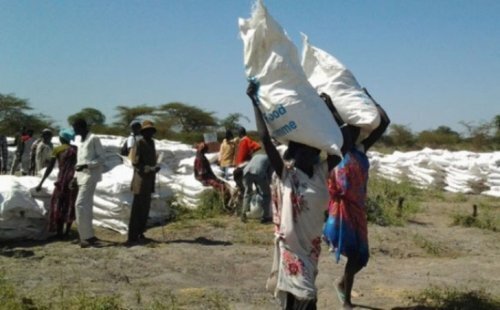
$50bn SDG-targeted investment proposals at SDG Investment Fair
Over 100 SDG-aligned projects with a total investment scope of $ 50 billion have been presented during the ...

The US announced more than $95 million in additional humanitarian aid for the people of South Sudan who are affected by ongoing political conflict and are facing extreme food insecurity, including likely famine.
This funding includes more than $52 million from the US Agency for International Development (USAID) and nearly $43 million from the US Department of State. It brings the total US humanitarian assistance to more than $482 million so far in Fiscal Year 2021.
With this new assistance, USAID will help provide emergency food and nutrition assistance, essential healthcare, shelter, safe drinking water, and sanitation and hygiene services to some of the nearly 4 million people impacted. When possible, the Agency procures food from South Sudanese farmers who were able to harvest their crops. This life-saving assistance will also support people who are internally displaced, as well as South Sudanese refugees in host communities in Uganda, Sudan, Ethiopia, Kenya, and the Democratic Republic of the Congo.
South Sudan is facing the highest levels of food insecurity and malnutrition since its independence in 2011. The upcoming May-to-July lean season is expected to be the most severe on record and has the potential to leave more than 7 million people, including more than a million children, in need of food assistance. Recent floods, political instability, and COVID-19 have further exacerbated a dire situation.
The United States is the largest donor of humanitarian aid to the South Sudan response efforts, and we remain committed to helping the people of South Sudan. Humanitarian assistance will not solve the conflict, but it is vital to keeping civilians alive. Ultimately, a political solution is the only way to end the suffering of the South Sudanese people.
The World Food Program welcomed the USAID’s contribution of $345 million to support its food assistance in South Sudan, where rising food insecurity has pushed 60 percent of the population into hunger and poverty.
The latest Integrated Food Security Phase Classification (IPC) assessment this year warns that 7.24 million people will face severe acute hunger at the height of the lean season in July, while 1.4 million children will be acutely malnourished.
Unprecedented floods, the impact of COVID-19 on the lives of the poorest people and increased conflict over the last two years have taken their toll on what is the world’s youngest country.
The contributions provide relief to extremely vulnerable families living in emergency or catastrophic levels of hunger and in dire need of immediate food and nutrition assistance.
The WFP will also utilize the US funding to scale up its livelihoods and resilience-building activities, enabling the South Sudanese people to build their own future.
“This funding from our biggest donor, USAID, comes at a very critical time when funding is scarce and needs are enormous,” said Matthew Hollingworth, Representative and Country Director of WFP in South Sudan.
“WFP relies on predictable funding, which enables us to plan ahead to prevent the kind of alarming conditions that precede famine by covering the pressing needs of the most food-insecure communities. These funds will also help WFP to pre-position food stocks for the lean season when humanitarian access is more challenging,” he added.
Over 100 SDG-aligned projects with a total investment scope of $ 50 billion have been presented during the ...
Global electric car sales are set to hit around 17 million by the end of ...
Ericsson Canada marked the Earth Day by joining the Environment and Climate Change Canada’s (ECCC) Net-Zero ...


اترك تعليقا